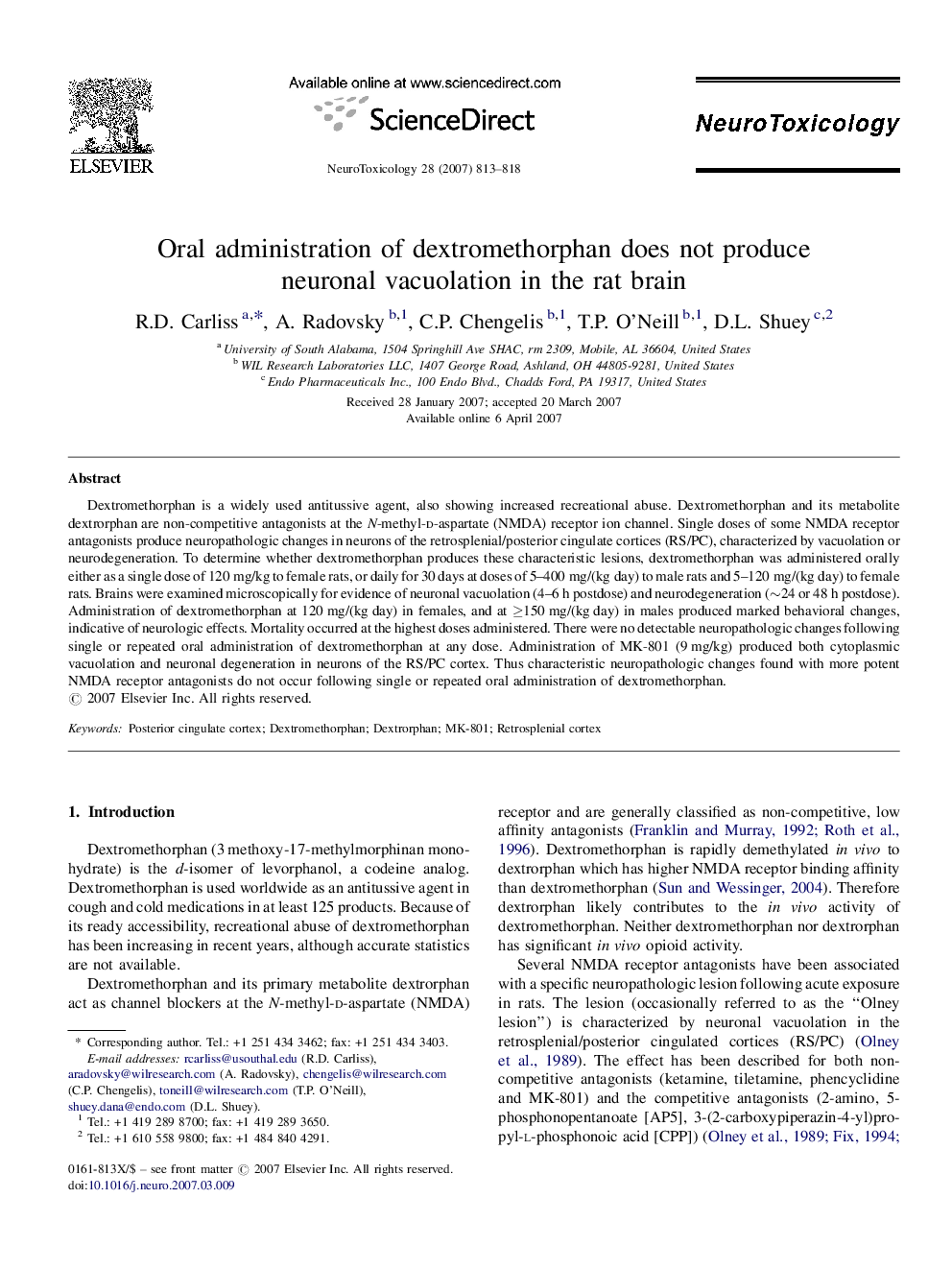| Article ID | Journal | Published Year | Pages | File Type |
|---|---|---|---|---|
| 2590475 | NeuroToxicology | 2007 | 6 Pages |
Dextromethorphan is a widely used antitussive agent, also showing increased recreational abuse. Dextromethorphan and its metabolite dextrorphan are non-competitive antagonists at the N-methyl-d-aspartate (NMDA) receptor ion channel. Single doses of some NMDA receptor antagonists produce neuropathologic changes in neurons of the retrosplenial/posterior cingulate cortices (RS/PC), characterized by vacuolation or neurodegeneration. To determine whether dextromethorphan produces these characteristic lesions, dextromethorphan was administered orally either as a single dose of 120 mg/kg to female rats, or daily for 30 days at doses of 5–400 mg/(kg day) to male rats and 5–120 mg/(kg day) to female rats. Brains were examined microscopically for evidence of neuronal vacuolation (4–6 h postdose) and neurodegeneration (∼24 or 48 h postdose). Administration of dextromethorphan at 120 mg/(kg day) in females, and at ≥150 mg/(kg day) in males produced marked behavioral changes, indicative of neurologic effects. Mortality occurred at the highest doses administered. There were no detectable neuropathologic changes following single or repeated oral administration of dextromethorphan at any dose. Administration of MK-801 (9 mg/kg) produced both cytoplasmic vacuolation and neuronal degeneration in neurons of the RS/PC cortex. Thus characteristic neuropathologic changes found with more potent NMDA receptor antagonists do not occur following single or repeated oral administration of dextromethorphan.
